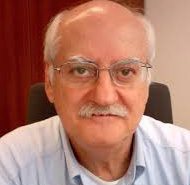Does our simulation community need EXASCALE ?
By Prof. David Ceperley, University of Illinois Urbana-Champaign

The computer simulation of electrons, atoms, molecules, and their assemblies in soft and hard matter is foundational for many scientific disciplines and important commercially. Exascale computing is coming and our community should take part as are our colleagues in lattice gauge theory, climate modeling, cosmology, genomics and other disciplines. Continue reading…


